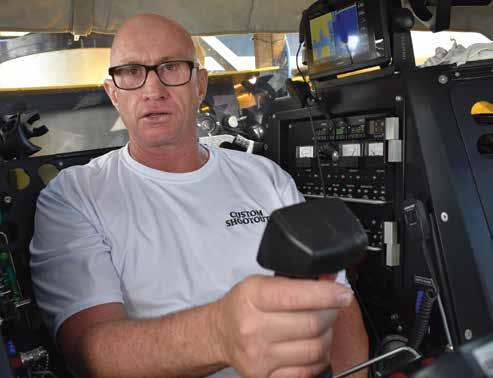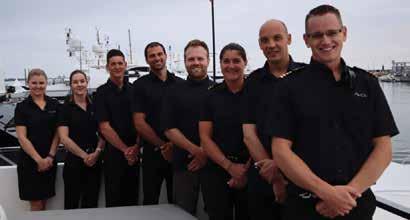CREW LIFE
How captains see mental health in yachting
By ISS Captains Committee The Captain’s Committee of the International Superyacht Society (ISS) is a collective of current seafaring captains from varying backgrounds and locations that work together to represent the concerns of yacht crew and captains. Projects include support for ISWAN and the launch of the yacht crew helpline yachtcrewhelp.org and the publishing of issues of wide industry concern. In this second article from the ISS Captains [find the first one about fatigue at the-triton.com], we confront an issue that cannot be ignored. It is not generational, not gender specific nor culturally targeted. Mental health of seafarers poses a threat and risk to all crew. It manifests in seemingly innocuous behavioral changes and can have devastating consequences. This article was in draft well before COVID-19 changed the fabric of our global community. We will not provide any commentary on the crisis as there is 34 FALL/WINTER 2020
The-Triton.com
enough already. All it does is heighten the need to be aware of our seafarers and their mental health challenges.
The problem
Crewing on a yacht is characterized by a unique set of features that sets it apart from other occupations. This includes: 1. Living in an environment that must appear to be “perfect” at all times, 2. A lack of empathy from shore support network (i.e. misdirected envy from family and friends with no understanding of yachting environment or pressures), 3. Demanding physical and mental working conditions, 4. Long hours of work creating high levels of stress and fatigue, and 5. Employment insecurity where the slightest perceived failure can result in being let go on a whim with all the attendant stress. It can also be a lonely life. Not only are
yacht crew away from family and friends for long periods of time – for some at a young age – many seafarers live isolated lives while onboard. An increasing degree of automation onboard ships has led to smaller crews, and crew members may have different cultural and ethnic backgrounds. Of course, cultural diversity is also a positive, depending on how it is approached. The lonely life in seafaring is not new, of course. What is new is that society’s expectations have moved incredibly quickly. This cannot be ascribed to any generation; in a time of constant connectivity, nobody expects to be out of contact for an extended [time] from loved ones, family and friends ashore. Technology, for all its wonders, can also not be ignored. It has become clear that the use of technology, especially social media, has made the individual more isolated, with face-to-face interactions diminished. Crew are goaded into presenting an alternative reality online. This “reality”
often presents a life that is carefully curated and full of joy, whereas the lived experience of the crew member is long working hours, little recognition and restricted living quarters, all the while traveling to beautiful locations but being unable to step ashore to enjoy them. This may be the true reality, though the picture shown on social media by the crew member is very different, all smiles, and beach parties. The incongruence and tension between these two realities creates tremendous stress on the individual. It can have a devastating impact and was cited as a contributing factor to the loss of a member of our yachting community who could not reconcile the online reality with the yacht’s true reality. As we captains did in our first article, we also look to other industry sectors for guidance to define and understand the problem. The commercial marine sector is aware and concerned for seafarers’ mental health, so much so that Cardiff















